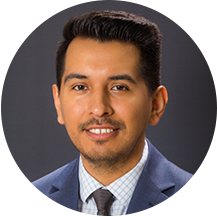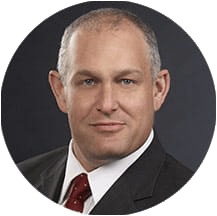In the United States, a notario (notary public) is authorized to serve as an unbiased witness when performing legal formalities. Immigrants can be confused by the title of notario because in other countries, notarios have training similar to lawyers and can perform legal services in those countries. For example in Latin America, notarios are considered legal experts, many of whom are attorneys. In the United States, some notarios present themselves as consultants who are qualified to offer legal services. These notarios present themselves as attorneys with expertise to handle legal matters. Notarios are not authorized to provide legal advice in any legal matters. Delicate legal matters such as applying for lawful status should be handled by a competent attorney.
Knowing that some immigrants are unaware of the differences between notarios in the United States and in other countries, some notarios take advantage of this misconception. They often target vulnerable communities through misleading and deceptive advertising. Immigrants seek notarios because they offer affordable services in comparison to attorneys. Notarios prepare different immigration applications such as requests for work permits, green cards, and asylum. However, many are not qualified to prepare these immigration applications or file applications for immigrants who do not qualify for the relief sought without informing the immigrants. As a result, notarios create life changing problems, in addition to financial loss, for many immigrants.
Lately we have been assisting individuals who unknowingly applied for legal status years ago through a notario and are now attempting to legalize their status through a different means. These immigrants were taken advantage of by notarios who prey on immigrants who do not understand U.S. immigration law, many of whom do not understand English. Notarios promise immigrants a work permit or a green card but do not tell immigrants that they will be filing for an application for which the immigrant does not qualify for. As a result of these actions, immigrants may be accused of misrepresentation by the government when attempting to obtain legal status through a new application.
Inadmissibility
Immigrants applying for a visa or lawful permanent resident status must be admissible to obtain legal status. Immigrants that have committed certain past acts are inadmissible and therefore unable to obtain a visa or lawful permanent resident status unless they obtain an approved extreme hardship waiver. Immigrants may be found inadmissible if they obtained an immigration benefit such as a work permit through a willful material misrepresentation. Some immigrants that have committed a material willful misrepresentation can apply for a hardship waiver if they have a qualifying relative. However, demonstrating that a misrepresentation was not willfully made can eliminate the need for an extreme hardship waiver for those who were taken advantage of by a notario.
Willful Misrepresentation
Under the Immigration and Nationality Act, inadmissibility based on a misrepresentation requires that the government find all the following elements:
- The person procured, or sought to procure, a benefit under U.S. immigration laws;
- The person made a false representation;
- The false representation was willfully made;
- The false representation was material; and
- The false representation was made to a U.S. government official, generally an immigration or consular officer.
An immigrant will be found inadmissible if all the above elements are proven by the government. The government has the burden of providing evidence that would allow a reasonable person to conclude that the immigrant willfully misrepresented a material fact to obtain an immigration benefit. Immigrants who unknowingly applied for an immigration benefit due to the deceit of a notario should contest any allegations of misrepresentation.
According to U.S. Citizenship and Immigration Services Policy Manual, “willfully” is an action that is made knowingly. In other words, a misrepresentation cannot be willful if it was made inadvertently or accidently. The government must establish that the immigrant had knowledge of the falsity of the misrepresentation. Moreover, the government must show that the misrepresentation was made intentionally and with the intention of providing false material information. An immigrant can only be held responsible for false representations made by a notario or attorney if the immigrant was aware of the actions taken by their representative.
Immigrants who unknowingly applied for an immigration benefit because of the deceit of a notario and are now seeking to apply for lawful permanent residence, should be ready to explain this matter to an immigration officer during their immigration interview. Officers who conduct interviews have access to previous filed immigration applications submitted by the immigrant and often ask questions about said applications. Immigrants in this situation should challenge an allegation of a material misrepresentation by contesting that they did not willfully make a false statement since they unknowingly applied for an immigration benefit because of the deceit of the notario.
Immigrants that unknowingly applied for legal status should consult with an immigration attorney prior to submitting a new application for legal status. An attorney can review your previously submitted documents or request a copy of your immigration through a Freedom of Information Act request. By reviewing your documents, an attorney can determine whether any previously filed application resulted in a serious immigration consequence such as an accusation of a material misrepresentation or an order of removal.
We have helped numerous immigrants overcome allegations of material misrepresentation. Wilner and O’Reilly’s lawyers have years of experience dedicated to immigration law. We have former immigration officials and board-certified specialists, so we offer extensive experience and knowledge to help you with the most complicated immigration cases.
At Wilner & O’Reilly, APLC, we offer free initial telephonic or virtual consultations so you can consult with us in the comfort of your home. Contact one of our offices to schedule a free consultation. We have offices Orange, Riverside, San Diego, Fresno, Sacramento, and San Francisco, California; Phoenix, Arizona; Salt Lake City and Orem, Utah; and Boise, Idaho.
ABOUT THE AUTHOR(S)
GIANNI ARCE – ASSOCIATE ATTORNEY

Mr. Arce is an associate attorney at Wilner & O’Reilly. He received his Bachelor of Arts in Political Science from the University of Southern California. Mr. Arce began working for Wilner & O’Reilly in 2015 as a case manager. After working for the law firm for a year and half, he moved to Boise, Idaho to assist with the opening of the firm’s Idaho office. During his time in Idaho, Mr. Arce attended law school. While attending law school, Mr. Arce continued to work for Wilner & O’Reilly full-time as a case manager and law clerk. Additionally, he volunteered for the International Rescue Committee, a non-profit organization, where he provided pro bono assistance to refugees and underrepresented immigrants. Mr. Arce received his Juris Doctor from the University of Idaho College of Law. Thereafter, he returned home to California.
Mr. Arce is well versed in immigration law and has extensive experience assisting clients with family-based, employment-based, and removal defense immigration solutions. As a child of immigrant parents, he witnessed the struggles that his mother experienced as a non-English speaker and the challenges in navigating through the U.S. immigration system. He takes great pride in providing clients with tailor-made solutions to their individual situations.
RICHARD M. WILNER – FOUNDING PARTNER

Richard M. Wilner is a founding member of Wilner & O’Reilly, APLC, and is Board Certified by the State Bar of California as a Specialist in Immigration and Nationality Law. He is admitted to practice law in the State of California and before the U.S. District Courts for the Central, Northern and Southern Districts of California, the Northern District of Texas, the U.S. Court of Appeals for the Ninth Circuit and the U.S. Supreme Court.Mr. Wilner has received the coveted Martindale-Hubbell AV Rating, the highest legal and ethical rating that one can receive from one’s peers in the legal community. Similarly, he has been awarded the title of Super Lawyer from 2007 to the present. He is best known for his work in advising Fortune 500 companies, middle and small market businesses, entrepreneurs and foreign nationals of extraordinary ability in athletics, arts, and sciences in the complex area of U.S. Immigration and Nationality Law.


Comments are closed.